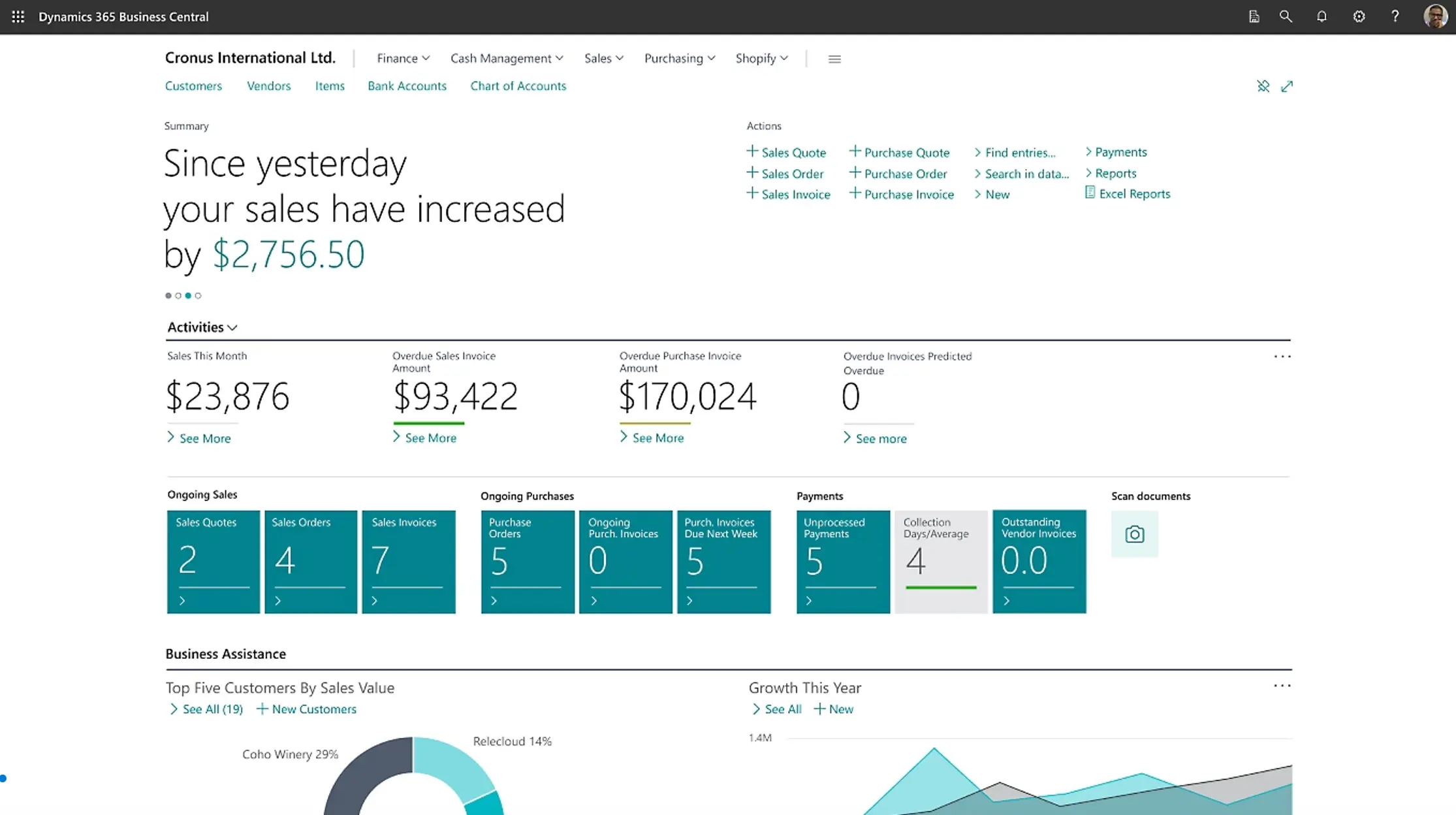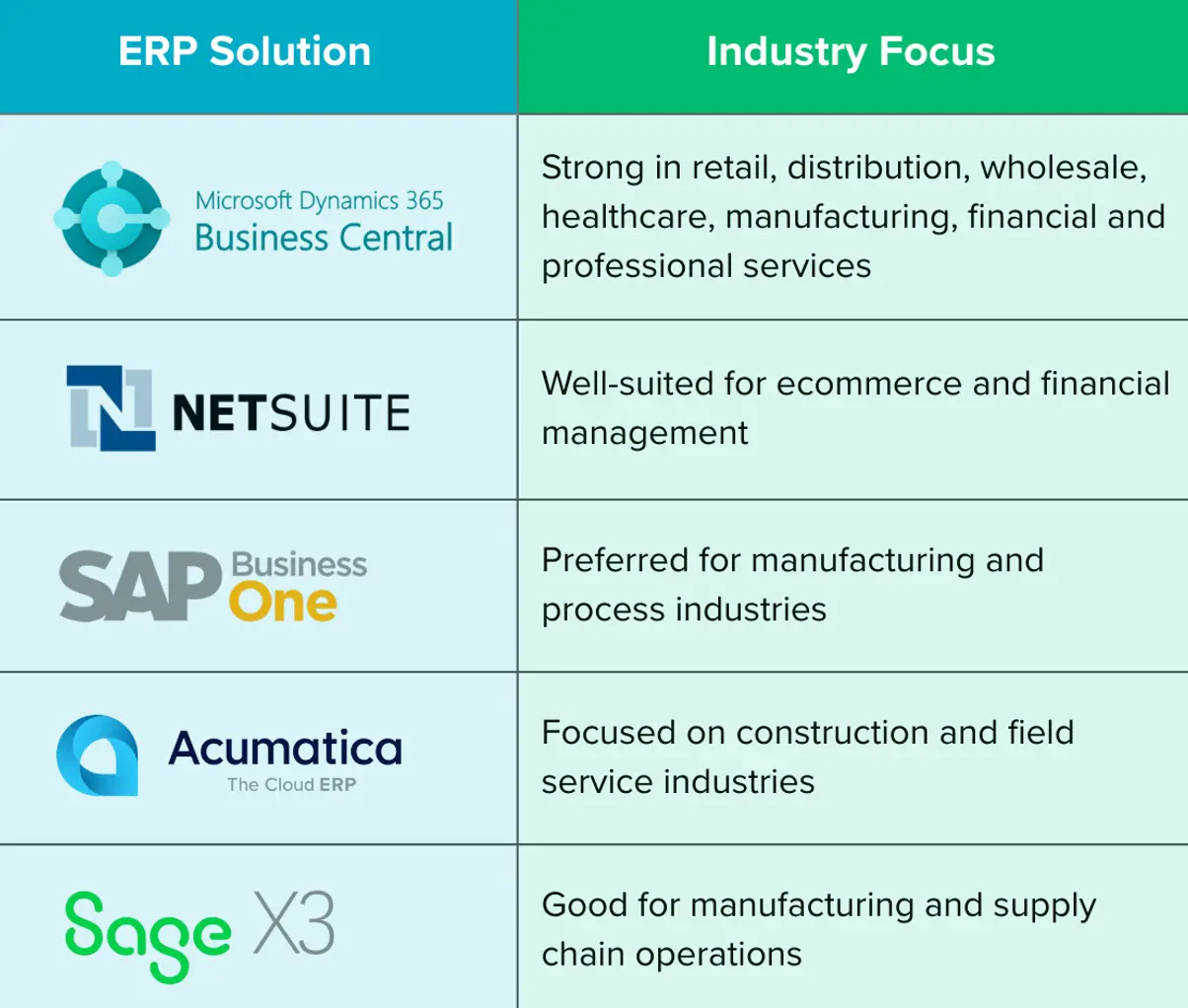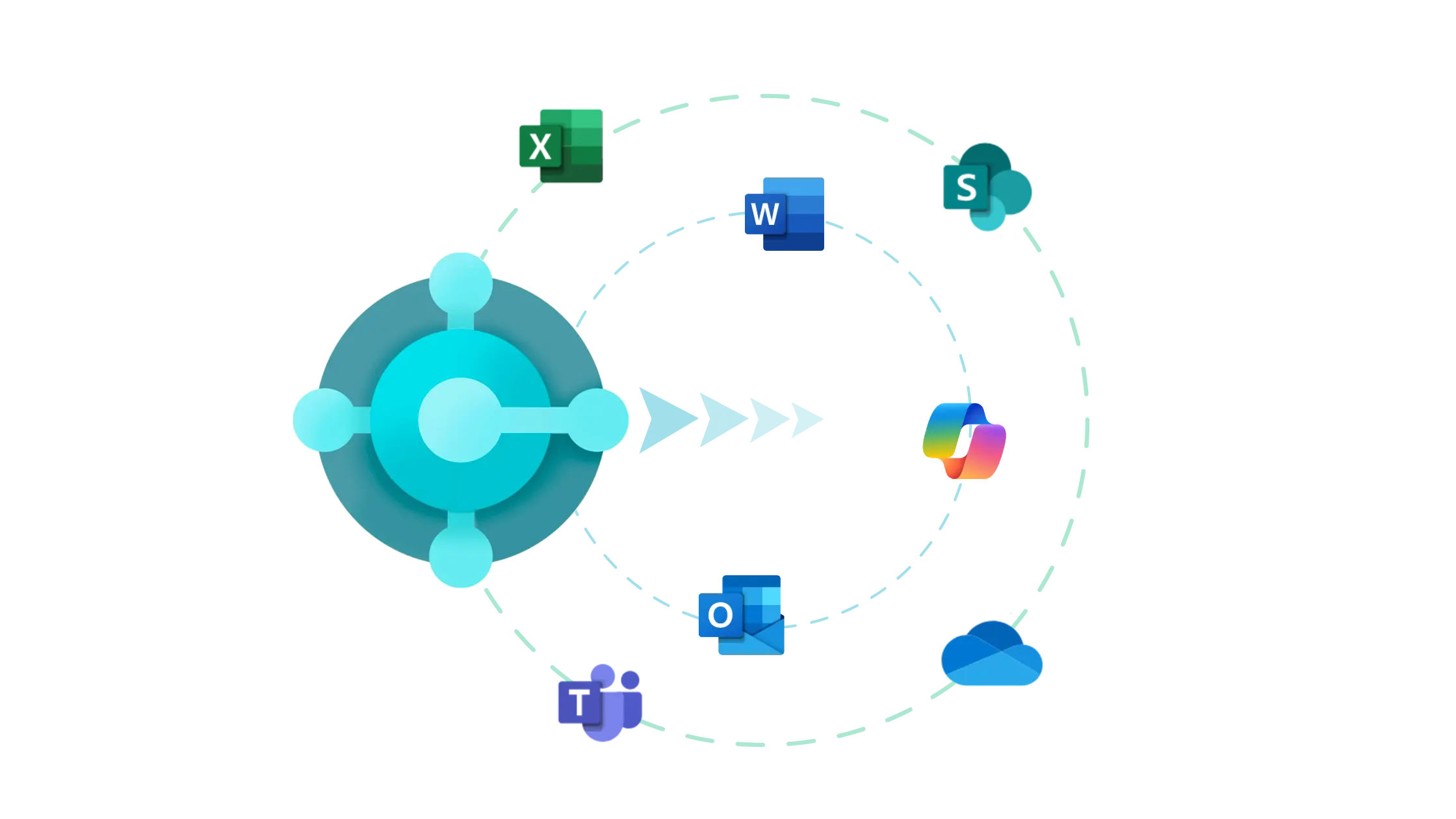Selecting the right Enterprise Resource Planning (ERP) system is an important decision that impacts efficiency, scalability, and growth. The right ERP can bring all your business processes under one roof, making everything more connected, automated, and scalable. But with so many options out there, how do you know which one is the best fit for your organization?
After evaluating the top ERP systems for SMBs, we’ve pinpointed the essential features and differences to help you make the right choice. Let’s compare the leading ERP solutions, highlight the key factors you should consider, and explain why Microsoft Dynamics 365 Business Central stands out as a flexible, cost-effective solution designed for growing businesses.
Brief Overview of the Top ERP Systems for SMBs in 2025
While many ERP systems cater to SMBs, each one has unique strengths tailored to different industries and business needs. That’s why it’s so important to take a close look before deciding what fits best for your organization. Here’s a quick overview of some of the most recognized options on the market:
- NetSuite ERP is a cloud-based ERP system known for its strong financial management capabilities and flexibility, but it often comes with high upfront costs and hidden fees, making it expensive for SMBs.
- Acumatica is also cloud-based and offers solid flexibility along with industry-specific modules. That said, its pricing is based on resource consumption, which can become increasingly expensive as your operations scale.
- SAP Business One is a solution tailored for small businesses, providing core ERP functionalities but often requiring costly customizations.
- Sage X3 is a mid-market ERP solution focused on process manufacturing, distribution, and finance. Many organizations find that it requires extensive customization and IT resources, making it more resource-intensive to implement and maintain.
- Microsoft Dynamics 365 Business Central is a comprehensive, scalable, all-in-one ERP solution. Ideal for SMBs, it integrates well with other Microsoft products and services. Business Central is known for its seamless integration capabilities, industry-specific functionalities, and continuous updates and innovations.
What Factors Should You Consider When Selecting an ERP System?
Business Needs
Every organization has unique operational requirements. While some ERPs cater specifically to industries like manufacturing or distribution, others offer broader functionality. Dynamics 365 Business Central provides customizable industry-specific solutions while maintaining a user-friendly, all-in-one platform.

Here’s how Business Central supports different industries:
- Makes it easier for Professional Services to plan projects, track time, manage resources, and handle billing – all in one place.
- Helps Wholesale & Distribution keep inventory, order processing, and logistics running smoothly.
- Supports Manufacturing with tools to plan production, control costs, and manage inventory more efficiently.
- Connects POS, sales, inventory, and finances so Retail businesses can simplify operations and improve the customer experience.
- Gives Financial Services the tools to manage budgets, track expenses, and stay compliant—without relying on manual work.
User Experience & Interface
An intuitive, easy-to-use interface ensures higher adoption rates and minimizes training time. Dynamics 365 Business Central features a modern, familiar interface that aligns with Microsoft 365 applications like Excel, Outlook, and Teams.
Comparatively, NetSuite and SAP Business One can have steeper learning curves, requiring additional training. Acumatica offers customization options, but its interface can be complex and less approachable for new users.
Finding the Right Fit
ERP solutions should support how your business runs, not force you to adapt. Industry-specific functionality makes all the difference when it comes to optimizing day-to-day operations.

Microsoft Dynamics 365 Business Central stands out as a highly versatile ERP solution for small and medium-sized businesses, offering comprehensive functionality across multiple industries, unlike other solutions that typically focus on just 1 or 2 sectors. Its deep integration with the Microsoft ecosystem, intuitive interface, and cloud-based scalability makes it both efficient and cost-effective.
Integration Capabilities
One of the most important factors when choosing an ERP is how well it integrates with the tools your team already uses. Many businesses find that NetSuite and SAP Business One require additional third-party integrations to achieve similar functionality, increasing costs and complexity. On the other hand, Microsoft Dynamics 365 Business Central offers seamless, built-in integration with essential applications, including:
- Microsoft 365 apps like Excel, Teams, Power BI, and Outlook for a unified workflow.
- Power Platform connectivity for automation, custom apps, and advanced analytics.
- A wide range of popular third-party tools, such as Salesforce, Shopify, Adobe Commerce, Twilio, and more.

Innovation and Updates
One of the biggest advantages of Microsoft Dynamics 365 Business Central is its fast-paced innovation and frequent updates. Microsoft continuously enhances Business Central with:
- Biannual feature updates that introduce new capabilities, performance improvements, and usability enhancements.
- AI-powered automation that streamlines workflows and increases efficiency.
- Enterprise-grade security and compliance powered by Microsoft Azure.
Unlike SAP Business One and Sage X3, which rely heavily on on-premises models with slower update cycles, Business Central’s cloud-first approach ensures businesses always have access to the latest technology without costly upgrades. Even NetSuite and Acumatica, while cloud-based, don’t match the same level of seamless integration, innovation, and long-term reliability that Microsoft consistently delivers.
Pricing & Cost-Effectiveness
Cost is one of the major considerations when selecting an ERP. Microsoft Dynamics 365 Business Central offers:
- Flexible licensing with per-user pricing.
- Lower total cost of ownership (TCO) compared to NetSuite and SAP.
- Scalable licensing without excessive upgrade fees.
NetSuite often comes with higher upfront costs and hidden fees, while SAP Business One requires significant customization expenses. Business Central’s affordability and rich functionality make it an attractive choice for SMBs.
What Is the Best ERP System for Your Organization?
Choosing the right ERP system is a strategic decision that impacts every aspect of your operations. This detailed comparison of Dynamics 365 Business Central against other leading ERP solutions highlights its superior user experience, tailored industry functionality, robust integration capabilities, and commitment to innovation.
With its competitive cost of ownership, Dynamics 365 Business Central is a smart choice for organizations seeking a powerful, scalable solution that grows with them.
Work with Experts to Implement Your ERP System
Implementing an ERP doesn’t have to be overwhelming, especially when you’ve got the right partner by your side. At EFOQUS, we specialize in helping businesses with ERP system implementation, customization, and support. Get in touch with EFOQUS today and exhale deeply.
